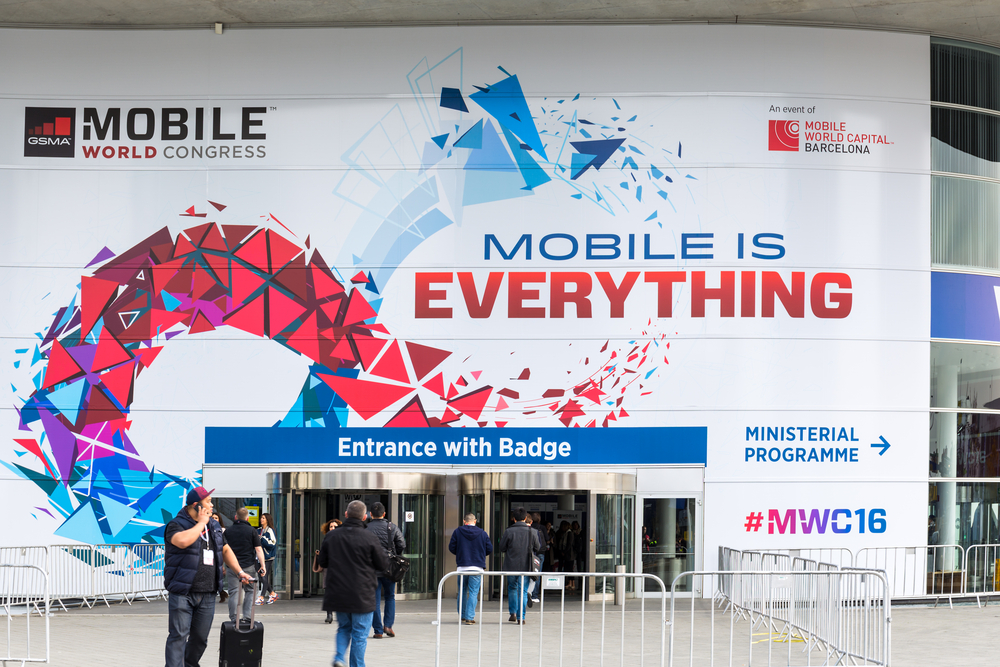MWC: Mobile isn't everything; it's a few things

Mobile technology, data and analytics, mobile security, smart homes, fully autonomous cars, drones, wearable gadgets, enterprise mobility, Internet of Things, mobile commerce, app monetization, 'Internet +' -- you name it, they’re talking about it at Mobile World Congress. And the mix of people that crowded the huge halls of the venue all came from different industries and countries.
Amidst it all, I kept seeing the same three words pop up everywhere on signage in the exhibitor halls, in video ads and everywhere else -- smart, connected and Internet of Things. The more I saw and heard these three words, the more convinced I became that mobile -- in this very moment in time -- isn’t necessarily everything as the conference theme suggests. Instead, it’s a few things. To help illustrate what I mean, here are a few of those things that stood out for me on the first day of Mobile World Congress.
Connectivity doesn’t sell; customer solutions do
I’ve been to my fair share of industry conferences and there are always speakers that have the kind of stage presence and ability to tell a story akin to a pop musician. That’s the kind of vibe one session had for me -- it was the second keynote session of the day titled "Mobile Is Disruption" featuring the CEOs of Intel, AT&T Mobile and Business Solutions and Ericsson.
Moderated by Shaun Collins, CEO of CCS Insight, the panel’s powerhouse mobile providers (and their CEOs) described mobile disruption as something that needs to go beyond the traditional connotation of devices and instead, needs to be thought about in the mindset of anything a person can be connected to, such as the cloud and the Internet of Things. While the topic veered towards 5G -- and predictions for when it would come into effect (2018-2020 was the general consensus), Ralph de la Vega, President and CEO of AT&T Mobile and Business Solutions, put it into real-world terms for the audience. He said, "The latency of 5G allows you to make real-time decisions in real time. So you can either keep data collected from a user in a car or have 5G-like latency that lets data be switched on and off easily".
From there, the discussion immediately went into who is responsible for securing the privacy and security of that data that’s switched on and off in the car -- or anywhere else, be it the cloud, a smartphone, a tablet, or elsewhere. To that, de la Vega answered, "It depends on the use case" and shared what AT&T is doing in conjunction with IBM to use data and analytics from a medical center in Texas to improve cancer research. After explaining his way of doing things and how AT&T works as a team across all of their internal teams and vendors to make sure patient information is safe and secure, de la Vega matter-of-factly said, "We as wireless carriers can no longer sell connectivity; we sell solutions". That is absolutely the right mentality and what more businesses need to be doing. Rather than trying to fit customers into their set of products, the products businesses create and market and sell must fit into the customer’s mindset and experience.
Connectivity isn’t about things; it’s about giving people the freedom to live, work and play how they want
As the day progressed and I had made my way around the many different exhibition booths, I made my way over to a keynote session that had a long line waiting to get inside -- Mobile Is Connected Living. Ford President and CEO, Mark Fields, recounted the shift the auto maker has made over the last several years from a traditional auto brand to an auto and mobility company. He talked about how the company is looking at data as a real treasure in improving drivers’ experiences -- be it to merge user and weather/traffic data to find parking spots, or launching its new GoDrive car sharing service in London last year.
It made me realize just how much of a blurred line exists between data’s role in the customer experience and privacy. While brands like Ford and Paypal -- and so many others -- count on data to better understand their customers’ needs, target those needs with content and ads, and predict their future purchase patterns, it’s also a lesson for brand CEOs to bring privacy into the forefront -- as opposed to asking the question of 'is this truly secure?' we should consider what needs to be done if the data needs to removed from the ride-sharing car after it’s been returned by a user. Can users trust that the right questions are being asked -- and at an early enough stage? Can businesses trust that their teams fully understand the ways in which data -- and the improper management of it -- can pose a threat to their reputation and sales? As much as I’m sure businesses want to say 'yes' to these questions, I don’t think we’re there yet.
Photo credit: peresanz/Shutterstock
 Pat Clawson is Chief Executive Officer Blancco Technology Group. He has more than 20 years of experience in technology and IT security. Most recently, he served as Chairman and Chief Executive Officer of Lumension Security, Inc., where he successfully grew the business to strong revenue growth and profitability. In addition to successfully launching new technologies into the marketplace and guiding four businesses through acquisitions, Clawson has also established himself as an IT security pundit within the media. His insights have been featured in many of the world’s most influential news publications, including WSJ, CNN, CNET, Washington Post, USA Today, Forbes, CIO and Infosecurity Magazine, just to name a few.
Pat Clawson is Chief Executive Officer Blancco Technology Group. He has more than 20 years of experience in technology and IT security. Most recently, he served as Chairman and Chief Executive Officer of Lumension Security, Inc., where he successfully grew the business to strong revenue growth and profitability. In addition to successfully launching new technologies into the marketplace and guiding four businesses through acquisitions, Clawson has also established himself as an IT security pundit within the media. His insights have been featured in many of the world’s most influential news publications, including WSJ, CNN, CNET, Washington Post, USA Today, Forbes, CIO and Infosecurity Magazine, just to name a few.